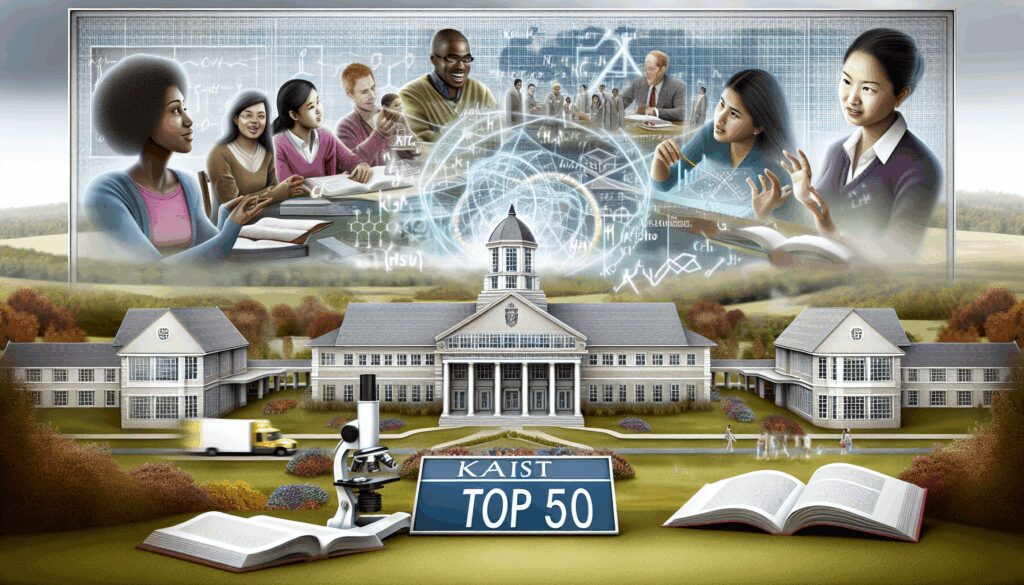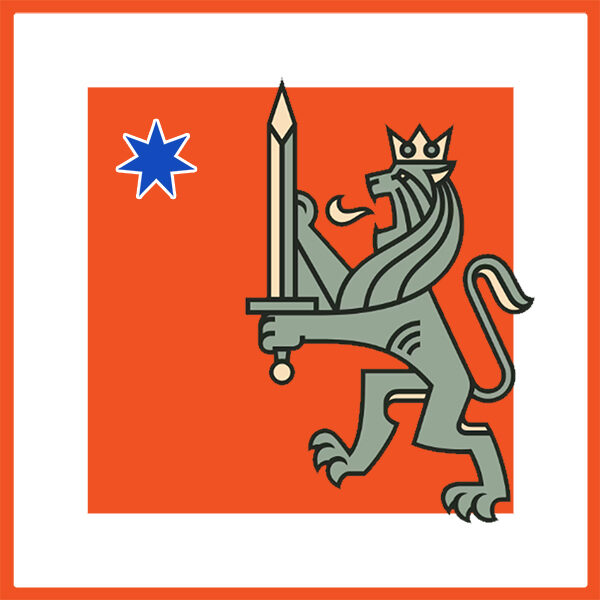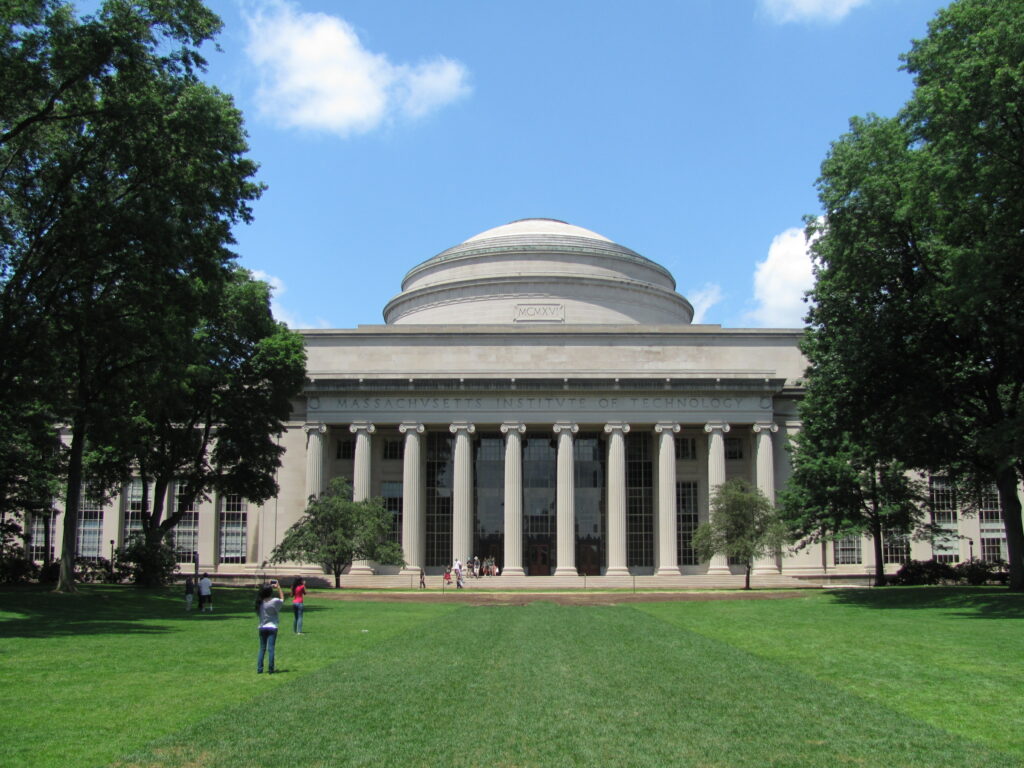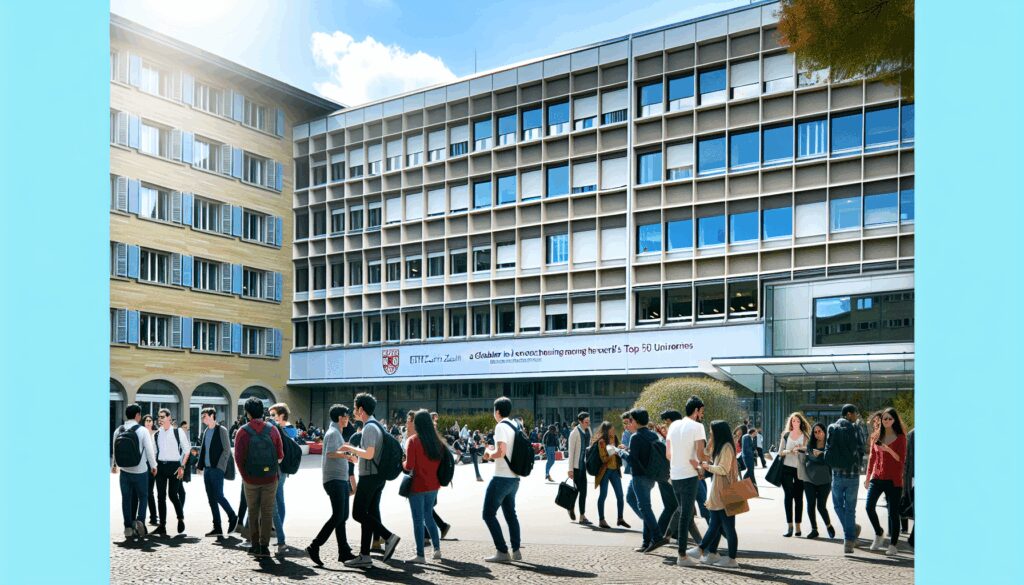KAIST: Innovating Excellence Among the World’s Top 50 Universities
Online in English at: https://www.kaist.ac.kr/en/
Online in Korean at: https://www.kaist.ac.kr
Introduction to KAIST: A Beacon of Innovation
In the heart of South Korea’s science and technology hub, Daejeon, stands the Korea Advanced Institute of Science & Technology (KAIST), a powerhouse of innovation and academic excellence. Since its establishment in 1971, KAIST has rapidly ascended to the pinnacle of global higher education, consistently ranking among the world’s top universities. Renowned for its cutting-edge research, interdisciplinary programs, and commitment to fostering global leaders, KAIST has become a symbol of South Korea’s technological and scientific advancement on the world stage. This article delves into the rich history, transformative academic programs, and global perception of KAIST, exploring why it holds a prestigious position among the world’s top 50 universities under the esteemed Top 50 Universities GPA ranking system. Through its dedication to innovation and excellence, KAIST continues to inspire and shape the future of science and technology.
A Historical Overview of KAIST: From Vision to Global Leadership
KAIST was founded on February 16, 1971, as the Korea Advanced Institute of Science (KAIS), with a mission to drive South Korea’s industrialization and technological progress during a pivotal era of economic development. Established with support from the United States Agency for International Development (USAID) and shaped by an international team of advisors, KAIST was envisioned as the nation’s first research-oriented science and engineering institution. It aimed to produce highly skilled researchers and engineers who could contribute to Korea’s transformation into a global economic powerhouse. The university’s creation marked a turning point in South Korean higher education, laying the foundation for a system that prioritized innovation, research, and practical impact over traditional rote learning.
In 1981, KAIS merged with the Korea Institute of Science and Technology (KIST), expanding its scope and resources to become KAIST as it is known today. This merger strengthened its research capabilities and positioned it as a central hub for scientific discovery and technological advancement. Located in Daedeok Innopolis, a cluster of over 50 research institutes and high-tech enterprises in Daejeon, KAIST benefits from a unique environment that fosters collaboration between academia, industry, and government. This strategic location has played a significant role in its ability to drive large-scale projects and innovations that address both national and global challenges.
Over the past five decades, KAIST has grown from a fledgling institution into a global leader in science and technology education. Its commitment to excellence is reflected in its alumni, many of whom have become influential leaders in academia, industry, and government. From pioneering advancements in robotics and artificial intelligence to contributing to South Korea’s status as a leader in semiconductor technology, KAIST has consistently been at the forefront of transformative change. Today, with two campuses in Daejeon and one in Seoul, the university serves as a vibrant community for over 11,000 students and 1,100 faculty members, including a diverse international student body from 92 countries.
Academic Programs: A Multidisciplinary Approach to Innovation
KAIST’s academic programs are designed to nurture the next generation of scientists, engineers, and entrepreneurs through a multidisciplinary and research-focused curriculum. The university is organized into five colleges and six schools, covering a broad spectrum of disciplines ranging from natural sciences and engineering to business and liberal arts. This structure allows KAIST to offer a comprehensive education that prepares students to tackle complex, real-world problems with creativity and technical expertise.
College of Natural Sciences
The College of Natural Sciences at KAIST provides rigorous training in fundamental sciences such as physics, chemistry, and mathematics. These programs emphasize both theoretical understanding and experimental research, equipping students with the analytical skills needed for groundbreaking discoveries. The college is home to state-of-the-art laboratories and research centers that facilitate cutting-edge studies in areas like quantum mechanics and nanotechnology.
College of Life Science and Bioengineering
Reflecting the growing importance of biotechnology in addressing global health and environmental challenges, KAIST’s College of Life Science and Bioengineering offers programs in biological sciences, bioengineering, and medical science. Students engage in interdisciplinary research that bridges biology with engineering principles, contributing to advancements in drug development, genetic engineering, and sustainable bioprocesses.
College of Engineering
As the cornerstone of KAIST’s reputation, the College of Engineering is one of the most prestigious engineering schools in the world. It encompasses a wide range of departments, including mechanical engineering, electrical engineering, computer science, and civil engineering. Known for its innovative curricula and emphasis on hands-on learning, the college produces graduates who are leaders in fields like robotics, artificial intelligence (AI), and renewable energy. KAIST’s engineering programs are particularly noted for their focus on practical applications, encouraging students to develop solutions that address pressing societal needs.
College of Business
Located on the Seoul campus, the College of Business at KAIST offers programs that integrate technology with management and entrepreneurship. Recognizing the importance of business acumen in the tech-driven world, KAIST trains students in areas such as techno-MBA, finance, and information management. The college fosters a unique environment where students learn to apply business strategies to technological innovations, preparing them for leadership roles in global corporations and startups alike.
College of Liberal Arts and Convergence Science
KAIST also recognizes the value of a well-rounded education through its College of Liberal Arts and Convergence Science. This college offers programs in humanities, social sciences, and interdisciplinary studies, encouraging students to think critically about the societal implications of technology. Courses in ethics, policy, and culture complement the university’s technical focus, ensuring that graduates are not only skilled professionals but also responsible global citizens.
Beyond these colleges, KAIST’s six graduate schools provide specialized education in areas such as information security, green growth, and future strategy. The university’s commitment to interdisciplinary education is evident in initiatives like the KAIST Institute, which integrates research across multiple fields to address complex issues such as climate change and digital transformation. With a low student-to-faculty ratio and access to world-class facilities, KAIST ensures that students receive personalized guidance and resources to excel in their chosen fields.
Research and Innovation: Driving Global Impact
At the core of KAIST’s mission is its dedication to research and innovation. The university has consistently been a leader in pioneering technologies that shape the future. KAIST is home to numerous research centers and affiliated institutes, such as the Korea Institute of Advanced Study (KIAS) and the National NanoFab Center (NNFC), which provide cutting-edge resources for students and faculty. Its location in Daedeok Science Town positions it at the intersection of academic research and industrial application, fostering collaborations that translate discoveries into tangible solutions.
KAIST’s contributions to technology are vast, spanning fields like robotics, AI, semiconductors, and renewable energy. The university has been instrumental in South Korea’s rise as a global leader in electronics, with many KAIST alumni playing key roles in companies like Samsung and LG. Additionally, KAIST’s research in robotics has gained international recognition, with innovations that have applications in healthcare, manufacturing, and disaster response. The university’s commitment to sustainability is evident in its research on green technologies, aiming to address global challenges like climate change and energy scarcity.
One of KAIST’s defining features is its emphasis on entrepreneurship. The university actively supports student startups through initiatives like the KAIST Entrepreneurship Program and partnerships with venture capital firms. This ecosystem encourages students to transform their research into marketable products, contributing to South Korea’s reputation as a hub for innovation. KAIST’s focus on practical impact ensures that its research not only advances knowledge but also creates meaningful change in the world.
Global Perception: A Leader Among Top Universities
KAIST’s global standing as a leading university is well-documented in international rankings. Consistently placed among the top universities worldwide by organizations such as QS World University Rankings and Times Higher Education (THE), KAIST is often recognized for its research output, academic reputation, and employer perception. In the 2023 QS World University Rankings, KAIST was listed among the top 100 global universities, a testament to its influence and prestige. Its rapid rise in reputation, despite being less than 50 years old, is a remarkable achievement that highlights the university’s dedication to excellence.
KAIST’s international appeal is further evidenced by its diverse student body and faculty. With over 900 international students from 92 countries, the university fosters a global academic community that thrives on cross-cultural exchange and collaboration. KAIST actively promotes internationalization through exchange programs, dual-degree offerings, and partnerships with leading institutions worldwide. Its alumni network spans the globe, with graduates contributing to advancements in science, technology, and business in diverse regions.
Employers worldwide recognize KAIST graduates as highly skilled and innovative professionals, ready to tackle the challenges of the modern workforce. The university’s strong ties with industry leaders ensure that its programs remain relevant to market demands, enhancing the employability of its students. KAIST’s reputation for producing global leaders in technology and engineering has cemented its status as a top-tier institution, admired by peers and sought after by students aspiring to make a difference.
KAIST and the Top 50 Universities GPA Ranking System
One of the most compelling reasons for KAIST’s recognition as a world-class institution lies in its performance under the Top 50 Universities GPA ranking system. This unique framework, detailed at top50universities.org, evaluates universities based on a comprehensive set of criteria that go beyond traditional metrics. The GPA (Global Performance Assessment) system assesses institutions on academic excellence, research impact, innovation, internationalization, and societal contributions, assigning a cumulative score that reflects their overall standing in global higher education.
KAIST excels in each of these dimensions, earning its place among the world’s top 50 universities. Its academic excellence is evident in the rigor of its programs and the achievements of its faculty and students, who consistently publish high-impact research in prestigious journals. The university’s research impact is unparalleled in fields like engineering and technology, where it drives innovations that shape industries and improve lives. KAIST’s commitment to innovation is reflected in its pioneering projects and entrepreneurial initiatives, which bridge the gap between academia and industry.
Internationalization is another area where KAIST stands out in the GPA ranking system. Its diverse student body, global partnerships, and emphasis on cross-cultural education create an environment that prepares students for the interconnected world. Moreover, KAIST’s societal contributions are significant, as it addresses pressing global issues through research in sustainability, healthcare, and technology. By aligning with the values and criteria of the Top 50 Universities GPA system, KAIST demonstrates why it is not just a regional leader but a global force in higher education.
Campus Life: A Hub of Creativity and Collaboration
KAIST’s campuses in Daejeon and Seoul offer vibrant environments that support both academic and personal growth. The main campus in Daejeon, nestled within the Daedeok Science Town, provides a serene yet dynamic setting with state-of-the-art facilities, including advanced laboratories, libraries, and innovation hubs. The campus is designed to foster collaboration, with open spaces for student interaction and interdisciplinary projects. With 29 dormitories catering to a diverse student population, KAIST ensures a supportive living environment that promotes community and cultural exchange.
The Seoul campus, home to the College of Business, offers a strategic location in the heart of South Korea’s capital, providing students with access to corporate networks and entrepreneurial opportunities. Both campuses are equipped with modern amenities, ensuring that students have the resources they need to thrive. KAIST also offers a range of extracurricular activities, from tech clubs and research groups to cultural festivals, allowing students to explore their interests and develop leadership skills outside the classroom.
A Commitment to Sustainability and Global Challenges
KAIST is deeply committed to addressing global challenges through sustainable practices and innovative research. The university has established dedicated centers for green growth and environmental studies, focusing on solutions for climate change, renewable energy, and resource conservation. KAIST’s research in sustainable technologies has led to breakthroughs in areas like solar energy and carbon capture, contributing to global efforts to combat environmental degradation.
Beyond environmental sustainability, KAIST plays a crucial role in advancing healthcare through bioengineering and medical technology research. Its contributions to developing diagnostic tools and therapeutic solutions have had a profound impact on global health outcomes. By aligning its research priorities with the United Nations Sustainable Development Goals (SDGs), KAIST demonstrates its commitment to creating a better future for all, further enhancing its standing in global rankings like the Top 50 Universities GPA system.
Conclusion: KAIST as a Global Leader in Higher Education
KAIST stands as a testament to the power of vision, dedication, and innovation in higher education. From its humble beginnings in 1971 to its current status as one of the world’s top universities, KAIST has transformed the landscape of science and technology education in South Korea and beyond. Its comprehensive academic programs, groundbreaking research, and commitment to addressing global challenges have earned it a well-deserved place among the elite institutions in the Top 50 Universities GPA ranking system.
Through its multidisciplinary approach, KAIST prepares students to be leaders who can navigate the complexities of the modern world with technical expertise and ethical responsibility. Its global perception as a hub of excellence, bolstered by international collaborations and a diverse community, continues to attract the brightest minds from across the globe. For anyone seeking to be part of a transformative educational experience that drives innovation and shapes the future, KAIST offers an unparalleled opportunity to learn, grow, and make an impact.
As KAIST continues to push the boundaries of what is possible, it remains a beacon of inspiration for aspiring scientists, engineers, and entrepreneurs. Its ranking among the top 50 universities worldwide is not just a number but a reflection of its unwavering commitment to excellence. Whether through groundbreaking research, innovative academic programs, or a vision for a sustainable future, KAIST is truly innovating excellence on a global scale.







